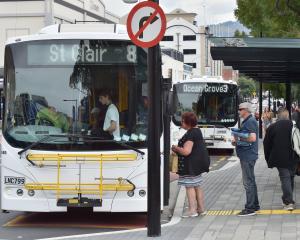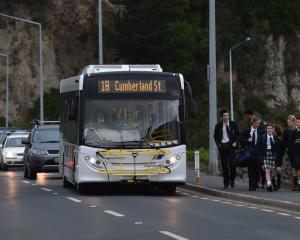Bus companies' three main reasons were driver safety lifting the wheelchair, space restrictions, and the potential hazard of the batteries, Wellington woman Trish Harris said.
Ms Harris and a group of friends undertook the Otago Central Rail Trail between Middlemarch and Clyde, where Ms Harris intended leaving her friends.
She said four bus companies informed her, either by phone or on their website, that she could not take her motorised wheelchair on their vehicles.
She contacted directly Atomic Shuttles and Dunedin City Council-owned Connexions Bus Services to address the concerns.
"I was hoping if I sorted these things they would take me."
She had friends at both ends of her trip to lift the wheelchair on and off the vehicle, and the services did not look particularly full, she said.
Air New Zealand transported her dry cell batteries, she said.
Because she could not get on a bus, friends heading to Christchurch diverted to Dunedin on Friday where she was to visit a friend.
Ms Harris returns to Wellington today.
Ms Harris can walk about 50m before needing a rest.
She preferred not to name her disability.
New Zealand Transport Agency spokesman Andy Knackstedt said restrictions on batteries only applied to air travel.
"So in all circumstances of transport on land, electric wheelchairs are not subject to controls for transport as dangerous goods."
Bus companies were not obliged to take disabled people under law, he said.
Connexions general manager Tony Collins maintained the company required a Hazardous Goods Licence to carry the batteries.
"From a company policy perspective, this is the carriage of freight for which both hazardous substances regulations and health and safety regulations need to be complied with."
Also, it was uncertain whether the wheelchair would fit in the vehicle, and whether Ms Harris' friends would definitely be available to lift the chair.
Under the company's policy, it could not make a booking if there was any uncertainty, Mr Collins said.
Atomic Shuttles co-owner Peter Robertson denied Ms Harris offered her friends' help to lift the wheelchair.
An older driver was on duty for whom lifting the wheelchair was out of the question, Mr Robertson said.
Also, the shuttle did not have space.
Intercity sales and marketing manager Daniel Rode said the bus company could not take the batteries due to the hazardous materials they might contain.





